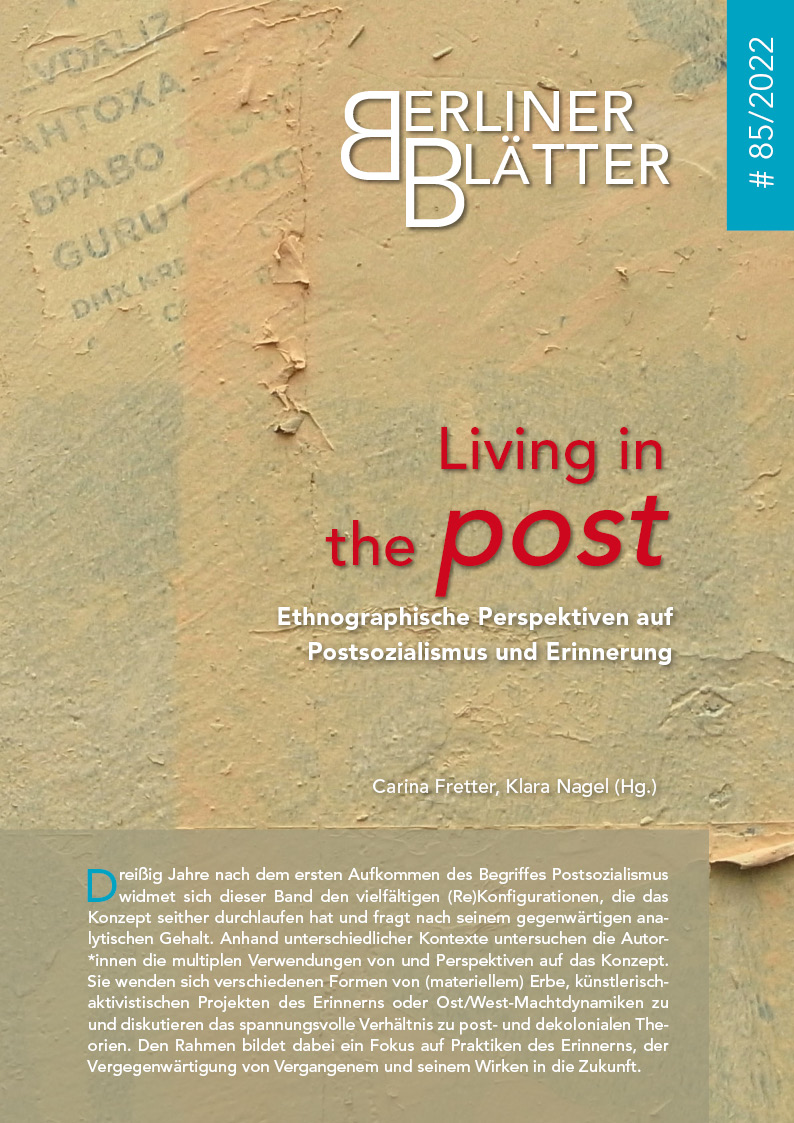Between Decolonial and Postsocialist Political Imagination
Redescribing Present Failures in Mostar
DOI:
https://doi.org/10.18452/23979Keywords:
political imagination, postsocialism, decolonial imagination, failure, Bosnia and HerzegovinaAbstract
This paper retraces the political imagination that serves as the background of an activist-artistic-scholarly project called Mostar’s Hurqualya that commemorates the socialist heritage of the Partisan Memorial Cemetery in Mostar, Bosnia and Herzegovina. The main proposition of the paper is that postsocialist political imagination presents an epistemological and political project of re-describing the failures – those of socialist modernity as well as of the contemporary postsocialist moment – in a way that acknowledges disappointment, but still makes it possible to act. With its focus on redescribing failures, it might be different from a decolonial political imagination, understood as a project of prescribing new models, blueprints, and examples for how to organize reality beyond the hegemonic concepts and institutions that have been developed within the modernity/coloniality nexus. While postsocialist and decolonial political imaginations are interwoven in complex ways since both are critical epistemological and political projects, there are also differences between them.
Downloads
Published
How to Cite
Issue
Section
License
Copyright (c) 2022 Berliner Blätter

This work is licensed under a Creative Commons Attribution-NonCommercial-ShareAlike 4.0 International License.








